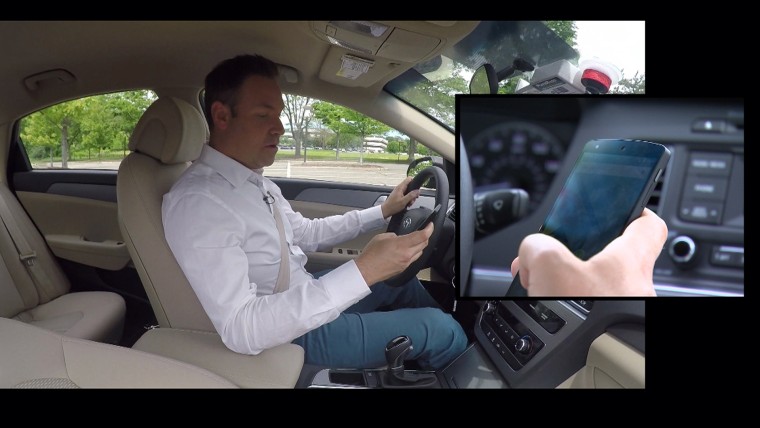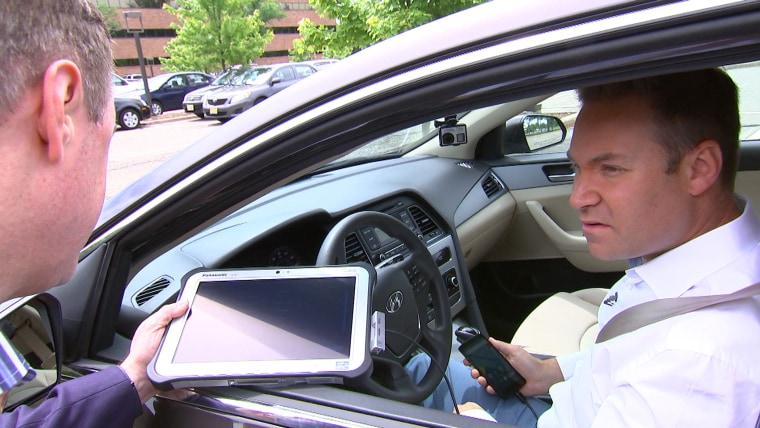A device the size of an electronic tablet is being hailed by its creators as a tool in the fight against distracted driving. But critics call it a major invasion of privacy.
It’s called the “textalyzer,” and TODAY national investigative correspondent Jeff Rossen tried it out to see how it works.
Like a breathalyzer, the textalyzer would be used by police after a car accident. But this device would instead allow officers to download information from the driver's phone and track every tap and click made in the minutes beforehand.
Pre-order Jeff Rossen's new book, "Rossen to the Rescue" here
Police could use it following an accident to determine whether the driver was distracted by a phone. Right now, the only way police can find that out is with a search warrant allowing them to download that data.
Texting and driving is illegal in 47 states and the District of Columbia. The textalyzer aims to crack down on that activity.

Rossen paid a visit to the headquarters of Cellebrite, the company that developed the device, to test out the technology.
In a blocked off parking lot, Rossen sent a text on his phone. He sent a message on Whatsapp and scrolled through Facebook. He then took a phone call. When he was finished, he handed over his phone to Jim Grady, Cellebrite’s chief executive officer.
They then plugged the phone into the textalyzer, which began downloading information about what apps had just been used.
“I can see that you opened WhatsApp at 2:45. There's several Facebook activity. You received an incoming call at 2:59 and you sent an SMS at 3 o’clock,” Grady reported.

That minute-by-minute report is important to authorities, but privacy advocates describe it as too intrusive. They argue that police should have to get a warrant for that kind of access.
“There's no guarantee when you hand over your cell phone over to the police officer that that officer won't be looking at or copying all kinds of personal data about you,” said Jay Stanley of the American Civil Liberties Union.
Grady said the device doesn’t get that kind of information.
“We're not getting anything about what was said in the texts or who it was said to. Just the touches and swipes,” he said.
The textalyzer is still a prototype. Cellebrite says police won't have the device until states pass legislation allowing it. A measure currently before New York lawmakers would allow authorities to suspend your license if you refuse to hand over your phone. Similar legislation is underway in New Jersey, Tennessee and Chicago.